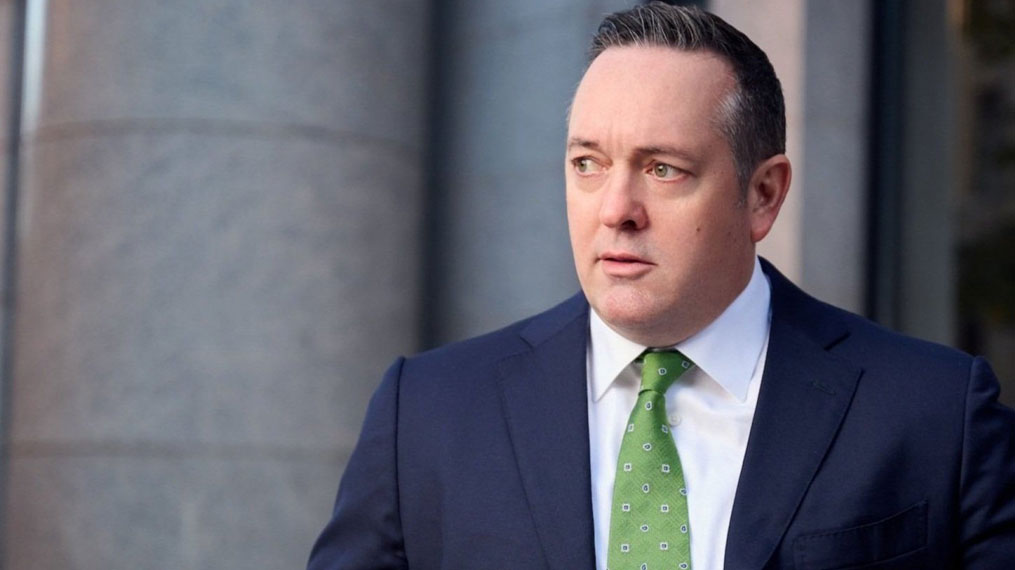Federal Drug Trafficking Lawyer

Federal Drug Trafficking Lawyer

Federal Drug Trafficking Attorney
If you have been accused of committing federal drug trafficking crimes, it is critical to work with an experienced federal drug trafficking attorney to protect your rights and interests. A lawyer from SBBL Law’s federal drug trafficking practice group can analyze the charges against you and immediately start working on your defense. We will ensure your rights and interests are protected throughout the criminal defense process, working to pursue optimal outcomes.
At SBBL Law, our team of experienced litigators comes from diverse backgrounds, including former federal prosecutors, federal agents, and Army JAG officers. We are aware of the tactics that investigators employ, as well as the strategies prosecutors use to build up drug crime cases.
Our legal team combines courtroom experience with knowledge about federal investigations to develop strong defenses against government investigation tactics. Our experienced legal professionals will defend you against drug trafficking charges by using customized investigative and litigation approaches that match your specific circumstances—including critically challenging traffic stops, search warrants, wire taps, cooperators, and statements you made to law enforcement.

What Are Drug Trafficking Crimes?
Drug trafficking generally refers to the manufacturing, transportation, distribution, or possession of controlled substances with the intent to sell or distribute them. Unlike simple possession, trafficking charges are much more serious and often come with mandatory minimum sentences under federal law.
Controlled substances involved in federal trafficking cases can include cocaine, heroin, fentanyl, methamphetamine, ecstasy, marijuana, and prescription drugs like oxycodone.
Federal law enforcement agencies pursue these crimes aggressively. If the alleged activity crosses state lines or involves large quantities of drugs, the federal government often claims jurisdiction. Additionally, trafficking crimes that involve weapons or defendants with prior drug convictions may result in federal interest and harsher sentencing.
Drug trafficking offenses led to 18,029 federal court cases in fiscal year 2024. Methamphetamine, fentanyl, and powder cocaine were the leading drug types. Due to the gravity of these charges, defendants must obtain skilled legal counsel to effectively understand federal drug regulations and build a strong defense.
As federal investigators put a large number of resources behind charging and prosecuting such cases, it is important to work with a lawyer who can protect your rights and who understands the law and all possible defenses.
Federal Drug Trafficking Investigations
Drug trafficking investigations carried out by federal agencies are intensive and can involve multiple agencies interacting to find, detain, and prosecute people who are involved in drug trafficking schemes. Federal drug trafficking investigations are generally carried out by the following organizations:
- Drug Enforcement Administration (DEA)
- U.S. Customs and Border Protection (CBP)
- Immigration and Customs Enforcement (ICE)
- Federal Bureau of Investigation (FBI)
- Alcohol, Tobacco, Firearms, and Explosives (ATF)
Federal agencies often partner with local drug task forces and state police, sheriff’s offices, and local city police departments in drug investigations. Federal, state, and local agencies often work together to conduct surveillance, carry out undercover buys, and execute search warrants.
The criminal defense drug team at SBBL Law has decades of combined professional experience working in and among such federal agencies and organizations, giving key insights into how investigations and the case-building process work. The investigation process typically involves:
- Surveillance and monitoring. Investigators may use undercover agents, confidential informants, anonymous tips, cell phone records, and electronic surveillance technologies to gain more insight into drug trafficking operations.
- Undercover operations and controlled buys. Investigators often conduct undercover buys or use informants to conduct controlled buys from drug trafficking targets.
- Search warrants. If there is probable cause to believe that evidence of drug trafficking activity is present in a specific location, search warrants can be issued to search vehicles, houses, and any location where it is suspected that drugs are being made, held, or sold.
- Seizure of illegal drugs and proceeds. Law enforcement will work to seize vehicles, drugs, money, cell phones, and other assets that have a connection with the suspected drug trafficking scheme.
- Laboratory analysis. Any drugs that were seized are analyzed in a lab to confirm substance composition.
- Questioning. Law enforcement may interrogate individuals arrested and people who are expected to have information to collect further evidence for building up a case.
Understanding the Process
Digital evidence plays a crucial role in federal cases through the examination of phone records, GPS tracking data, and social media activities. Investigators try to demonstrate a connection between multiple defendants through network or conspiracy charges. A defendant might be linked to just a single component of an alleged operation, like transportation or packaging, but can still face charges for the entire conspiracy.
An experienced drug crimes attorney can help ensure your rights are protected during a drug trafficking investigation, including:
- Preserving your right to legal counsel during all stages of the investigation
- Protecting your right to a fair trial, including access to exculpatory evidence and thorough cross-examination
- Challenging unlawful stops, searches, or seizures under the Fourth Amendment
- Invoking your Fifth Amendment right to remain silent and avoid self-incrimination
- Asserting your Sixth Amendment right to confront witnesses, including drug lab personnel, and understand the nature of the charges





Other Practice Specialties
Legal Strategies to Beat Drug Trafficking Charges
As drug trafficking convictions can lead to long prison sentences and other serious criminal penalties, it is critical to mount a strong defense to fight for the optimal outcome. A drug trafficking attorney from SBBL Law can determine whether the following may apply to your case, helping you build a strong defense:
- Fourth Amendment issues: If evidence was obtained through an illegal search or traffic stop, your attorney may move to suppress it.
- Chain of custody problems: Mishandled evidence can be challenged for admissibility.
- Lab testing concerns: Your attorney can question the reliability or accuracy of drug identification methods.
- Entrapment: If federal agents persuaded you to commit a crime you would not have otherwise committed, entrapment may be a viable defense.
- Witness credibility: Federal drug cases often rely on co-conspirators, cooperators, and informants. Their motives and truthfulness can be scrutinized, especially if they received a benefit for their cooperation or testimony.
- Lack of intent: Prosecutors must prove knowledge and intent. If this cannot be established, charges may be dismissed or reduced.
- Procedural violations: Errors during arrest or interrogation may justify motions to suppress evidence or dismiss charges.
- Plea negotiation: In some cases, your attorney may negotiate a plea to reduce sentencing exposure or eliminate certain charges.
Your lawyer might present an alibi or bring in favorable digital evidence, such as GPS or text records, and provide expert testimony to dispute the government’s accusations, depending on the evidence you have. We examine inconsistencies between witness testimonies and physical evidence to find flaws in the prosecution’s argument. All facts go through analysis to create opportunities for charge reduction or dismissal.
Our investigations in large-scale cases focus on possible federal overreach, which violates your rights through methods such as coerced testimony or exceeding jurisdictional limits, and targeting defendants based on unreliable information from informants. We recognize the intense pressure that prosecutors experience to win trafficking case convictions, and we leverage it to counter the accusations against you.
FAQs
What Makes a Drug Case a Federal Offense?
The federal government takes control of drug cases when large amounts are involved, when they span state lines or national borders, or when federal agencies such as the DEA or FBI conduct the investigation. Additionally, state cases can become federal cases when the defendant has a prior history of drug convictions that the local U.S. Attorney’s Office determine warrants federal prosecution.
International and interstate trafficking cases, along with charges related to organized crime and conspiracy, typically fall under federal court jurisdiction. Since federal drug charges typically result in more severe penalties compared to state charges, defendants should secure experienced legal representation immediately.
Can I Be Charged if I Didn’t Personally Sell the Drugs?
Yes, federal conspiracy laws allow authorities to charge you with drug trafficking without requiring proof that you directly sold or possessed drugs. The government may hold you accountable for planning, moving, storing, or funding the operation and impose penalties equivalent to those for the principal perpetrator.
Informant testimony and surveillance evidence commonly support these charges, while defense attorneys have the opportunity to dispute the extent of your supposed involvement.
What Should I Do If I’m Under Federal Investigation?
Avoid communicating with law enforcement if you believe you’re the target of a federal drug trafficking investigation unless you have legal counsel present. Having a lawyer early on protects you from making damaging statements or choices during your defense. Through legal representation, you can receive assistance in managing communication strategies and evaluating risks while preventing charges through timely intervention.
What Are the Penalties for Federal Drug Trafficking?
The federal government determines drug trafficking penalties by considering the drug type and quantity, the defendant’s criminal history, and additional relevant factors. Any involvement of weapons, drug houses, large quantities, weapons, and interstate activity causes major increases in sentencing. An experienced lawyer can lower your legal exposure through strategic negotiation or evidence challenges.
Federal Drug Trafficking Lawyer Reviews
★★★★★
“Matt and Mikayla were outstanding to work with. Professional, timely, communicative and helped me every step of the way thru the process! I would recommend them and their firm to anyone who is looking for assistance!” – Nathan Weisenburger
★★★★★
“After searching around Michigan for a good dependable lawyer, I was recommended Heath Lynch from another lawyer. That was the best decision I have ever made by deciding to work with him and his law firm. Communication was great, he was very understanding, and very passionate about what he does. He showed nothing but compassion the entire case. I would recommend him to anybody that is looking for a federal lawyer in the state of Michigan!!!” – Bri Case
★★★★★
“Michael Bartish is a first rate attorney who walked me through my legal issues with both empathy professionalism. His legal advice was spot on and honest. He asked me to trust his experience and guidance to achieve an optimal result for myself and I am glad I did!! I highly recommend Michael and would not hesitate to work with him again.” – Joe VandenBosch


Work with a Federal Drug Trafficking Attorney to Fight Your Charges Today
Navigating federal drug trafficking charges alone can be intimidating, but, with legal help, you can prevail. Federal prosecutors generally build strong cases that rely on extensive investigations because the stakes in federal drug trafficking charges are very high.
SBBL Law delivers experienced strategic defense services from the start of your case to all the litigation stages. We comprehensively examine the evidence while contesting any illegal procedures and actively seek every possible solution to lessen or eliminate the charges against you.
Our team is prepared to defend your future, whether you face an investigation, recent indictment, or trial preparation. Reach out to SBBL Law now to arrange a private consultation with a federal drug trafficking attorney.
Where We Practice
Our criminal lawyers represent clients in nationwide federal criminal cases and Title IX investigations, and we regularly appear in courts throughout Michigan:
- U.S. District Court for the Western District of Michigan (federal court in Grand Rapids, Kalamazoo, Lansing, Marquette)
- U.S. District Court for the Eastern District of Michigan (federal court in Detroit, Ann Arbor, Bay City, Flint, Port Huron)
- Kent County (Greater Grand Rapids, Walker, Wyoming, Kentwood, Grandville)
- Newaygo County (White Cloud)
- Ottawa County (Hudsonville, Holland, Grand Haven)
- Allegan County
- Barry County (Hastings)
- Muskegon County
- Oceana County (Hart)
- Mecosta County (Big Rapids)
- Ionia County
- Montcalm County (Stanton)
- Clinton County (St. Johns)
- Gratiot County (Ithaca)
- Eaton County (Charlotte)
- Ingham County (Lansing, East Lansing, Mason)
- Jackson County
- Calhoun County (Battle Creek)
- Kalamazoo County
- Van Buren County (Paw Paw, South Haven)
- Mason County (Ludington)
- Lake County (Baldwin)
- Osceola County
- Berrien County (St. Joseph)
- Washtenaw County (Ypsilanti, Ann Arbor)
- and elsewhere throughout Michigan.
If you or someone you know is looking for a criminal defense attorney, call now for a free consultation (616) 458-5500 or (231) 924-8700 or connect with us online.
Kalamazoo
TYPES OF CASES
- White Collar Crimes
- Tax Crimes
- Other Financial Crimes
- Environmental Crimes
Allegan
TYPES OF CASES
- Domestic Violence
- Violent Felonies
- Firearms Offenses
- Major Cases
- Murder-for-Hire
Barry
TYPES OF CASES
- White Collar Crimes
- Tax Crimes
- Other Financial Crimes
- Environmental Crimes
Lona
TYPES OF CASES
- Domestic Violence
- Violent Felonies
- Firearms Offenses
- Major Cases
- Murder-for-Hire
Kent
TYPES OF CASES
- White Collar Crimes
- Tax Crimes
- Other Financial Crimes
- Environmental Crimes
Ottawa
TYPES OF CASES
- Domestic Violence
- Violent Felonies
- Firearms Offenses
- Major Cases
- Murder-for-Hire
Muskegon
TYPES OF CASES
- White Collar Crimes
- Tax Crimes
- Other Financial Crimes
- Environmental Crimes
Mecosta
TYPES OF CASES
- Domestic Violence
- Violent Felonies
- Firearms Offenses
- Major Cases
- Murder-for-Hire
Montcalm
TYPES OF CASES
- White Collar Crimes
- Tax Crimes
- Other Financial Crimes
- Environmental Crimes
Newaygo
TYPES OF CASES
- White Collar Crimes
- Tax Crimes
- Other Financial Crimes
- Environmental Crimes
Lake
TYPES OF CASES
- Domestic Violence
- Violent Felonies
- Firearms Offenses
- Major Cases
- Murder-for-Hire
Mason
TYPES OF CASES
- White Collar Crimes
- Tax Crimes
- Other Financial Crimes
- Environmental Crimes
Leelanau
TYPES OF CASES
- White Collar Crimes
- Tax Crimes
- Other Financial Crimes
- Environmental Crimes
Benzie
Grand Traverse
Manistee
Kalkaska
Crawford
Oscoda
Alcona
Oceana
TYPES OF CASES
- White Collar Crimes
- Tax Crimes
- Other Financial Crimes
- Environmental Crimes
Wexford
Missaukee
Roscommon
Ogemaw
Iosco
Osceola
Clare
Isabella
Ionia
Clinton
Eaton
Ingham
Van Buren
Calhoun
Jackson
Berrien
Cass
St. Joseph
Branch
Gladwin
Arenac
Midland
Bay
Huron
Gratiot
Saginaw
Tuscola
Sanilac
Shiawassee
Genesee
Lapeer
St. Clair
Livingston
Oakland
Macomb
Hillsdale
Washtenaw
Wayne
Lenawee
Monroe
Antrim
Otsego
Montmorency
Alpena
Presque Isle
Charlevoix
Emmet
Cheboygan
Our Locations
616-458-5500
Grand Rapids
60 MONROE CENTER ST NW #500
GRAND RAPIDS, MI 49503
Fremont
28 W. MAIN STREET
FREMONT, MI 49412






